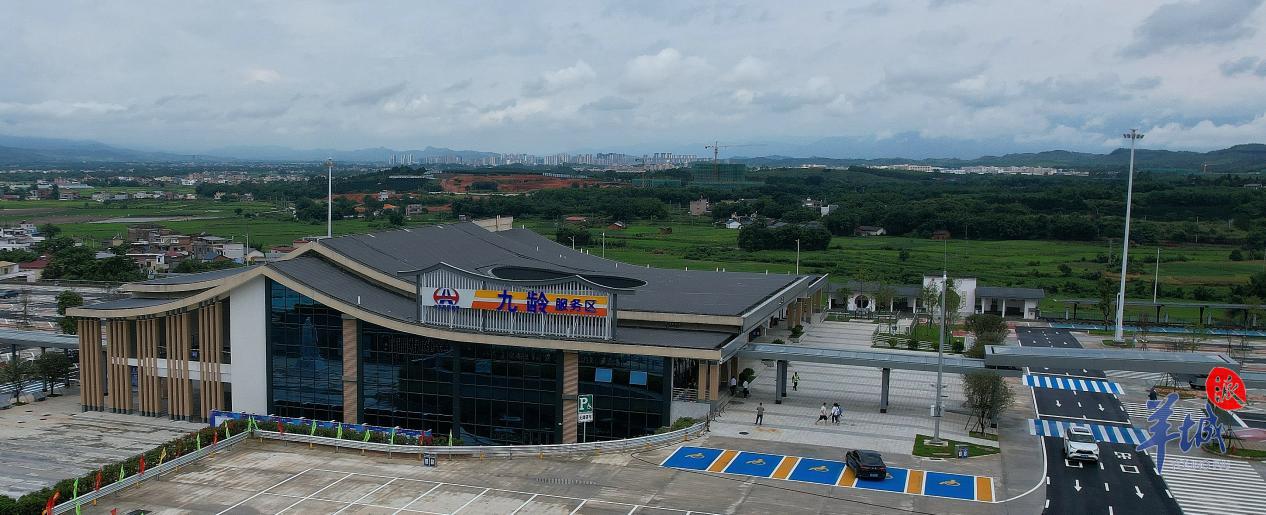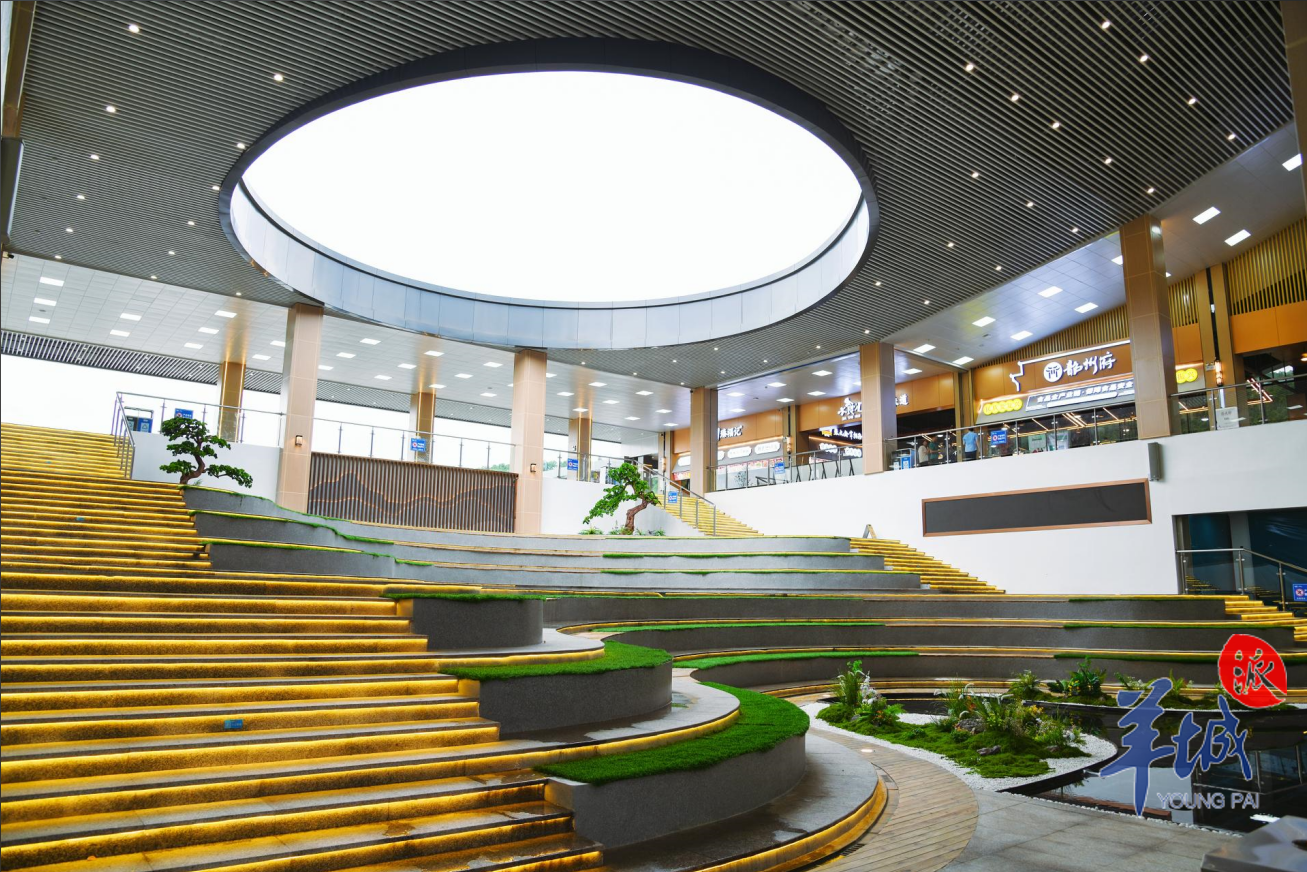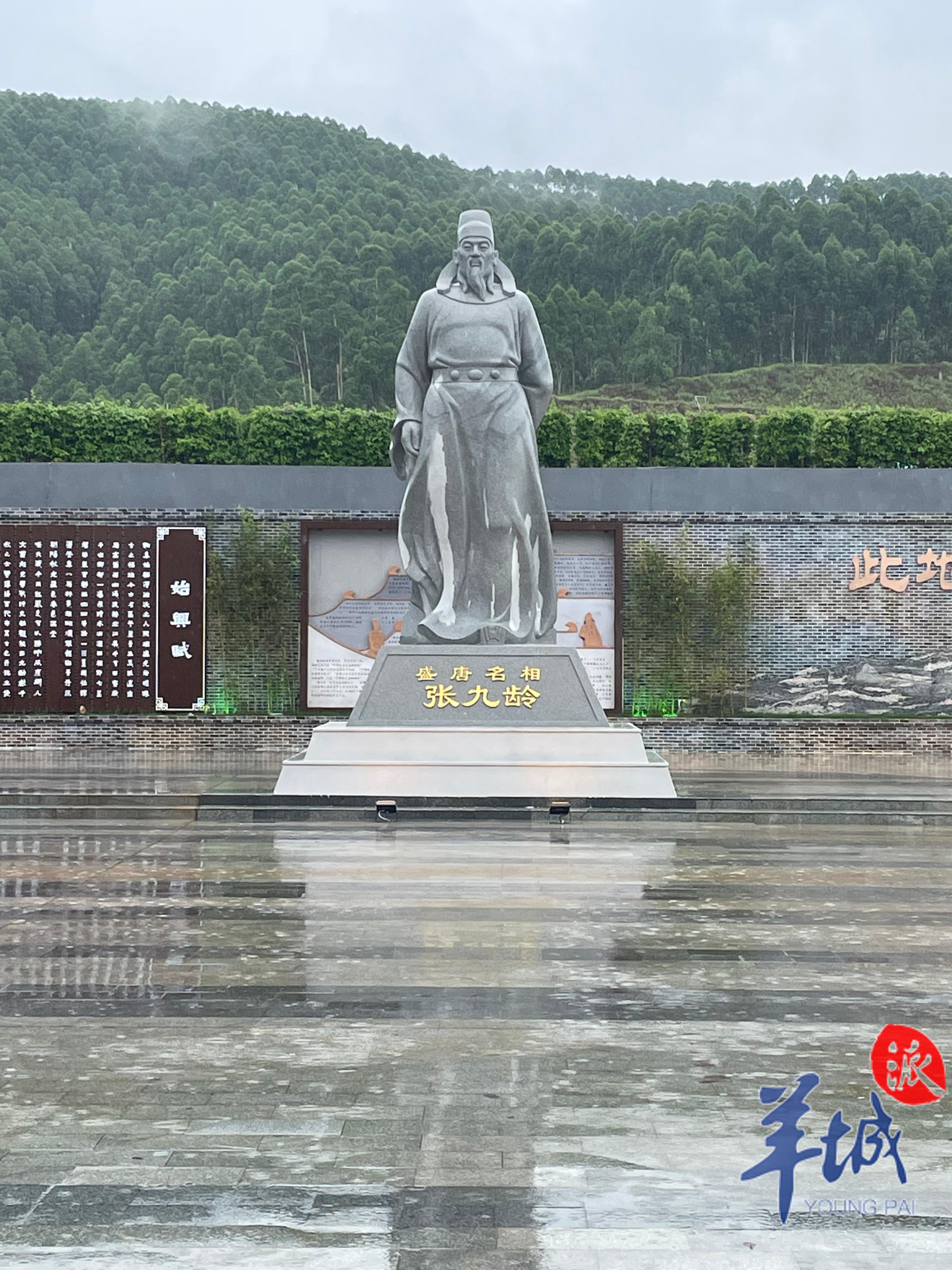
On the morning of June 16th, the Wuhan-Shenzhen Expressway's Shixing Link (referred to as the "Wuhan-Shenzhen Link") officially opened, welcoming its first visitors to Jiuling Service Area, Guangdong's first highway service area named after a person. The service area, named after the renowned Tang Dynasty poet and chancellor Zhang Jiuling, features an "open book" shaped sloping roof, a "bright moon" courtyard in a modern Chinese architectural style, and a statue of Zhang Jiuling, with each element showcasing the beauty of cultural heritage.

Jiuling Service Area is located in Shixing County, Shaoguan City, Guangdong Province, the hometown of Zhang Jiuling (673-740), a notable poet and chancellor of the Tang Dynasty. Named after him, the service area integrates local features such as the Chebaling National Nature Reserve and traditional Shixing elements. It incorporates folk culture, rural drama, scenic landscapes, and commercial displays, allowing travelers to experience the charm of traditional culture.
Shixing County boasts rich intangible and tangible cultural heritage, including the art of making "Chancellor Noodles" and the legends of Zhang Jiuling, both provincial intangible cultural heritages. These are closely linked to Zhang Jiuling, aligning perfectly with the cultural theme of the service area. The service area features a cultural and creative zone and cultural walls in its service building. They showcase the entire process of making Chancellor Noodles through creative exhibits, miniature models, and interactive kiosks, promoting local intangible cultural heritage.

Jiuling Service Area is the first in the province to be actively constructed with a single-sided and "tidal flow" design. It employs a "double ground floor" service building, allowing both directions of traffic to share commercial and service facilities. This design offers five significant benefits: reduced land use, shared resources and facilities, cost savings, enhanced service experience, and low-carbon energy efficiency.

With its "double ground floor" service building, Jiuling Service Area allows for the sharing of commercial and service facilities between northbound and southbound traffic. By providing sufficiently wide connecting roads between the north and south areas and implementing smart traffic guidance and physical separation, the service area can direct traffic to the opposite area during peak times, maximizing the use of parking spaces, gas stations, and charging stations. In extreme situations, the service area can accommodate up to 1,033 vehicles, effectively addressing congestion and the difficulty of finding parking spots during major holidays.
Source :Yangcheng Evening News
广东首个以人名命名的高速服务区有多先进?
“书卷”形的坡屋顶,新中式建筑风格的“明月”中庭,唐代名相张九龄的雕像……一步一景,尽显文化之美。
6月16日上午,武深高速公路始兴联络线(以下简称“武深联络线”)正式开通,广东首个以人名命名的高速服务区——九龄服务区——也迎来了第一批客人。
据了解,九龄服务区处于唐代名相张九龄的故乡广东省韶关市始兴县。张九龄(生于673年—卒于740年)是唐代著名诗人,曾官至宰相(相当于政府总理)。以他命名的九龄服务区以道为诗,融入车八岭元素、融合始兴地方特色,将民俗文化、乡村戏剧、山水田园、商业展示等元素注入其中,让过往的旅客领略传统文化魅力。
始兴县当地非遗和物质文化遗产丰富,其中宰相粉制作技艺和张九龄传说是省级非物质文化遗产,且均与唐朝名相张九龄相关,深度契合九龄服务区文化主题。因此,项目在九龄服务区的服务楼设置文创专区、文化墙等,通过创意小品、宰相粉制作工艺微缩模型、互动终端机等,展现宰相粉制作全过程,助力地方非遗和物质文化遗产宣传推广。
作为省内首个主动建设的单侧设置、“潮汐式”服务区,九龄服务区采用“双首层”服务楼形式,双向交通流可共享服务楼的商业配套与服务设施,具有“减少土地占用、资源设施共享、节约经营成本、提升服务体验、低碳节能环保”五大效益。
九龄服务区采用“双首层”服务楼形式,双向交通流可共享服务楼的商业配套与服务设施。通过在南北场区之间设置足够宽度的连接道路,采取智能交通指引及物理隔离,可在高峰时段将车流引至另一侧场区,实现停车位、加油站、充电桩等设施利用的最大化,极端情况下停车位可达1033个,有效化解重大节假日拥堵和“车位难求”的难题。
文 | 记者 王丹阳 通讯员 粤交集宣 金匡异 张立希
图 | 记者 曾育文 王丹阳
译 | 刘佳慧
-
[Video] Dance drama 'Dragon Boat' enthralls Guangzhou audience again
2024-06-17 16:56:18 -
Would you consider placing tailored ads in Guangzhou metro stations?
2024-06-16 23:59:24 -
Guangzhou 'post-90s' couple develops low-cost 3D printing technology
2024-06-16 23:59:32 -
The Allure of Chinese Culture: The Irresistible Charm of Dragon Boat Racing
2024-06-16 00:15:12






